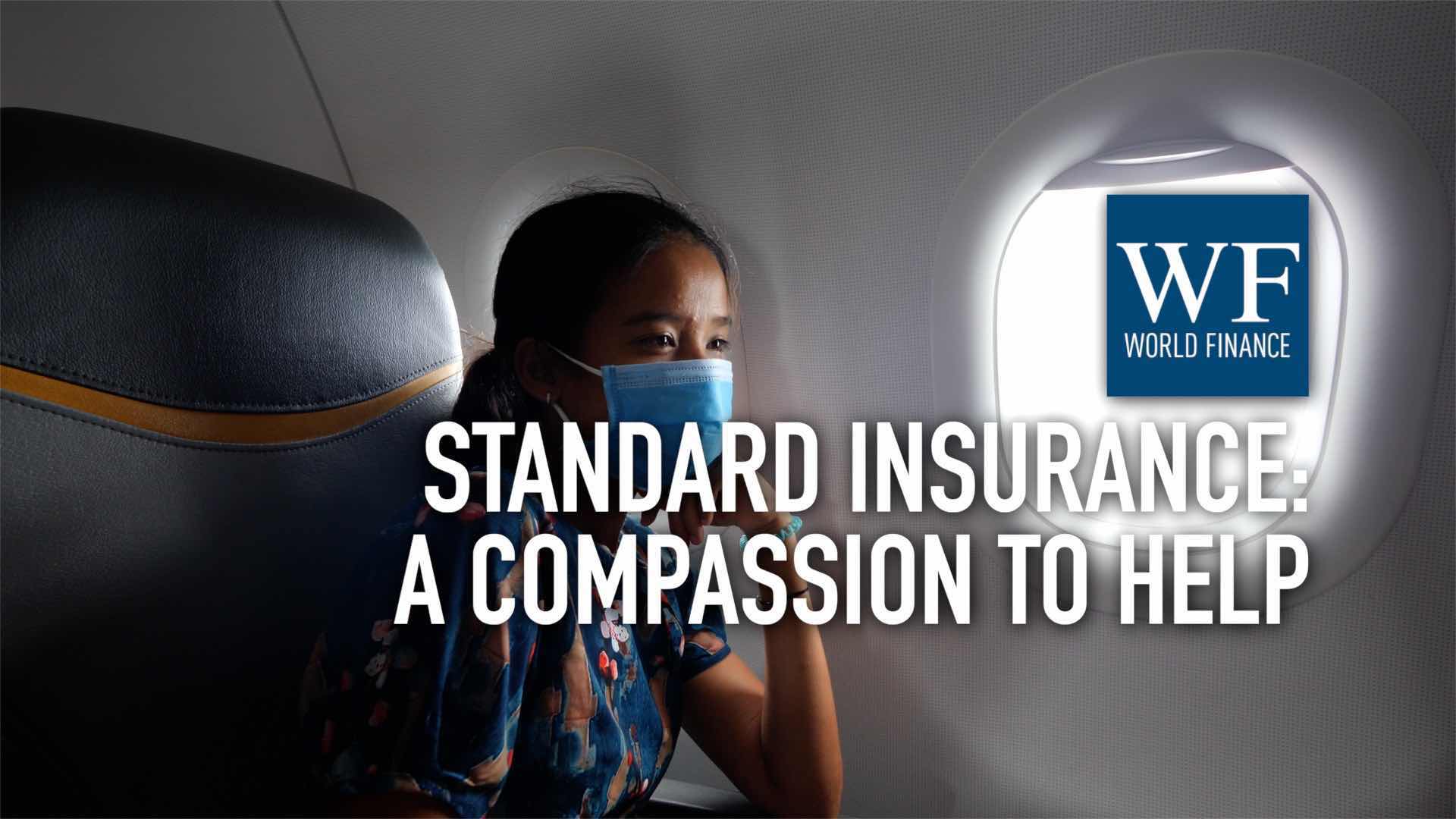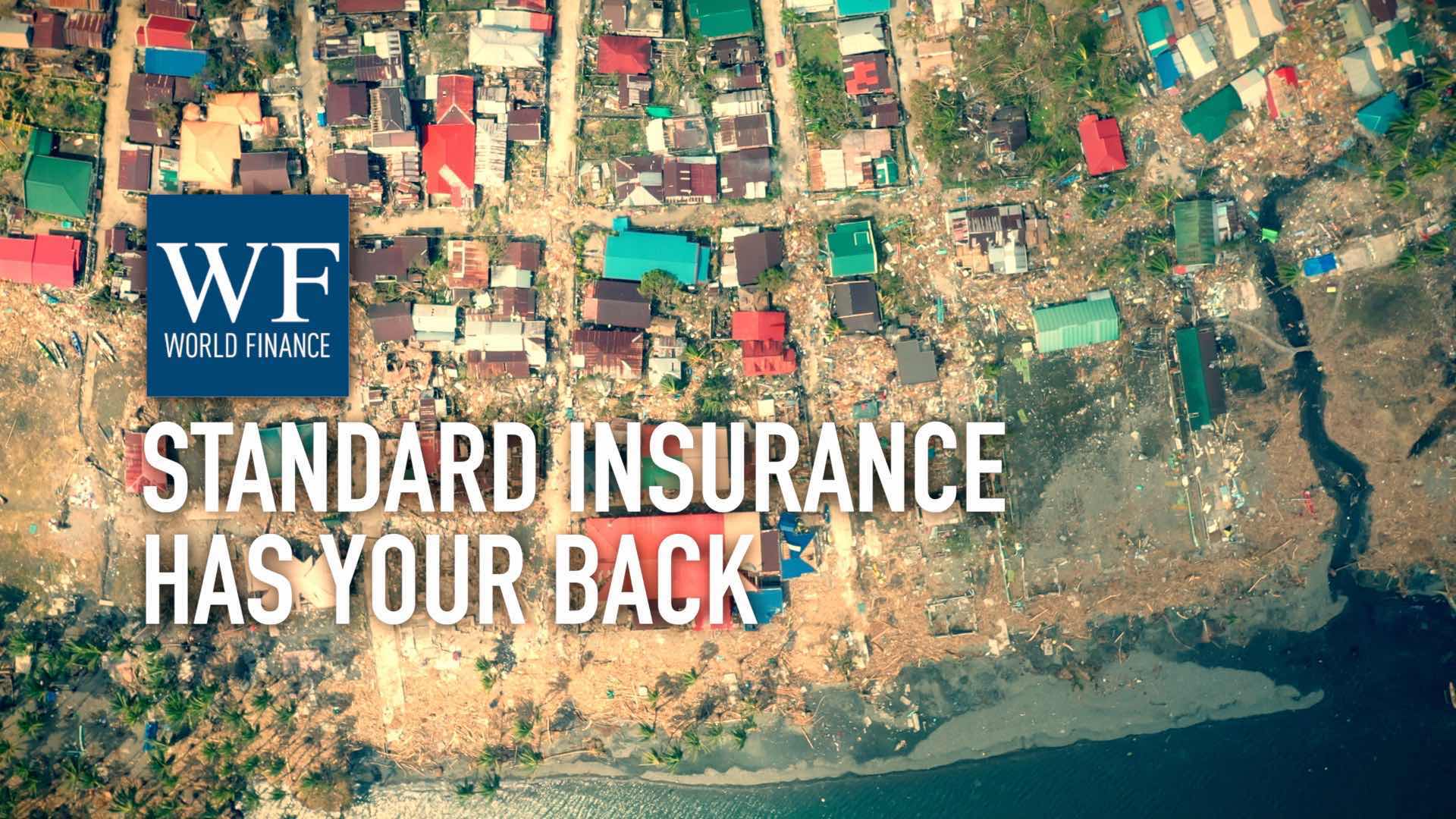How Philippines’ Standard Insurance prepares for cyclone season
Good hazard maps and comprehensive reinsurance keep the non-life insurance provider ahead of the game
Related:
Transcript
Typhoon Meranti is just the latest tropical cyclone to wreak havoc around Southeast Asia, as Pacific typhoon seasons seem to grow year on year in intensity. How is the insurance industry coping? John B Echauz and Patricia Echauz-Chilip from Philippines’ Standard Insurance explain that with 14-20 typhoons each year, they’re very familiar with insuring against natural catastrophes. 1,200 people all over the Philippines ensure the company is available to offer a quick and compassionate response, while excellent risk mapping and the best reinsurance facility in the country ensure Standard Insurance’s success.
World Finance: Typhoon Meranti is just the latest tropical cyclone to wreak havoc around Southeast Asia, as Pacific typhoon seasons seem to grow year on year in intensity. How is the insurance industry coping? John B Echauz and Patricia Echauz-Chilip from Philippines’ Standard Insurance join me now.
Patricia: how is the insurance industry generally coping with these increasing catastrophes?
Patricia Echauz-Chilip: Do you know, in the Philippines we have about 14-20 typhoons a year. And then the archipelago sits on a web of faults. So we’re really familiar with nat-cat.
I think the industry, and the clients, are getting smarter every year. We learn with every single event. Every year we review the risks together with our clients, and we provide more cover if they need it.
They’re also very proactive already, about protecting their assets. They retrofit their structures, they rebuild on higher ground. And sometimes it’s as simple as parking your car out of the way of the flood.
World Finance: A lot of the time speaking with insurance providers, people are talking about client education. But it seems very general, just about the benefits of insurance. Whereas you’re actually really reaching out to be specific about how to mitigate risk.
Patricia Echauz-Chilip: Yeah – there’s a sense of urgency, because maybe for other places it’s one in every four hundred years. For us, for typhoons it’s every year.
We have about 1,200 people all over the Philippines, so we’re physically there to help process the whole thing. Sometimes people have lost their businesses, their homes, even members of their family. And we kind of hold their hands through the process of how to go about their insurance, and how we can help them. We think of ourselves as a part of the community, and we’re happy to help in any way.
John B Echauz: Today, thanks to GPS, thanks to the internet, thanks to good hazard maps, thanks to geodetic engineers, thanks to political will: we are able to map our risks very, very carefully. We can tell if this street is prone to flooding, while this street next to it is not. We can tell if this property is prone to ground shaking or ground rupturing, or if it is not. That makes all the difference.
So our book, actually, is managed at a very detailed level. Once we’re happy with the risk that we have, the book that we have, we make sure we have the right reinsurance for it. We believe we have the best reinsurance facility in the country, thanks to our reinsurance team, led by our group chairman, our father, who’s done a very good job protecting our book. We have the most reinsurance capacity vis-a-vis our property book, which also supports and protects our motor book.
World Finance: You’ve always been an innovative insurer; how are you keeping ahead of client expectations in terms of technology and service?
John B Echauz: There are many, many things going on. For example, we have our own core IT system, which is first class, it’s fantastic. We have our own catastrophe monitoring system. We have our own digital platform to serve customers, intermediaries, and our associates.
We have our own vehicle recycling facilities. We have good learning and development for all our associates. We have to make sure that as they age their future is with us. We have our own BPO facility that helps us serve our international markets. Of course our reinsurance facility, which is fantastic. All of these things we put together, to help us achieve that single objective: being able to produce a product that works and is affordable to the public.
World Finance: Obviously technology is transforming all industries; what kinds of new needs for insurance are you seeing come out?
Patricia Echauz-Chilip: Everybody’s travelling all the time, so we have a growing travel insurance book. We’re studying technology: how to cover things like Uber and Grabb. It’s not traditionally insured, so: how do you do that? So things like this.
We’ve always been a traditional motorcar insurer, but now we also do construction, because the Philippines is in the middle of a boom.
John B Echauz: We also have to be very thoughtful about how we chop up the markets. And each market has a particular way of working and thinking. For example, millenials. We’re only learning now how to work with them, because they think very differently! They don’t want to speak with anyone. They want things very simple. They have no patience for you if you can’t do a good job.
Patricia Echauz-Chilip: And they don’t aspire to own a car or own a home! So that’s a traditional thing that we insure, so it’s all experiential for them. We have to be able to figure out how to address them.
World Finance: Let’s talk about the international market; what’s Standard Insurance’s strategy there?
John B Echauz: They say that there is ASEAN integration. For those of you who are not from Southeast Asia, it’s just one region: Southeast Asia! Actually these countries have very little in common. The average Filipino will know almost nothing about the average Thai, Malaysian, Indonesian or Vietnamese person. They might be nearest to us, but culturally they are so different.
We are closer to the US in terms of thinking and ways of doing things. And in terms of international expansion we can do two things. One we do today already: we have our BPO business. We provide support services to insurers all over the world. And the second thing is, all of these things we’ve put together has given us a good platform. We actually have enough to go to the US and put up a small, low-cost operator, supported by our entire Philippine operations.
So I think there is potential to go out. But whatever happens we’ll maintain our culture. Our culture is very precious to us; our culture of compassion, loyalty, and fighting spirit. We think a certain way, and our group chairman, our father, said that, “When times are difficult, you can walk slower. When times are easy, you walk faster. But what’s important is that you never stop. Because after a certain time, you’ll find yourself some place good. And that the journey was worthwhile.”
That’s gotten us this far, and we think it’ll take us to the next step.
World Finance: Patricia, John, thank you so much.
John B Echauz, Patricia Echauz-Chilip: Thank you so much, Paul.

 Standard Insurance: ‘It’s our life purpose to really be there for you when we’re needed’
Standard Insurance: ‘It’s our life purpose to really be there for you when we’re needed’ Peace of mind for all mankind: How Standard Insurance takes on the challenge of Filipino NatCat
Peace of mind for all mankind: How Standard Insurance takes on the challenge of Filipino NatCat
